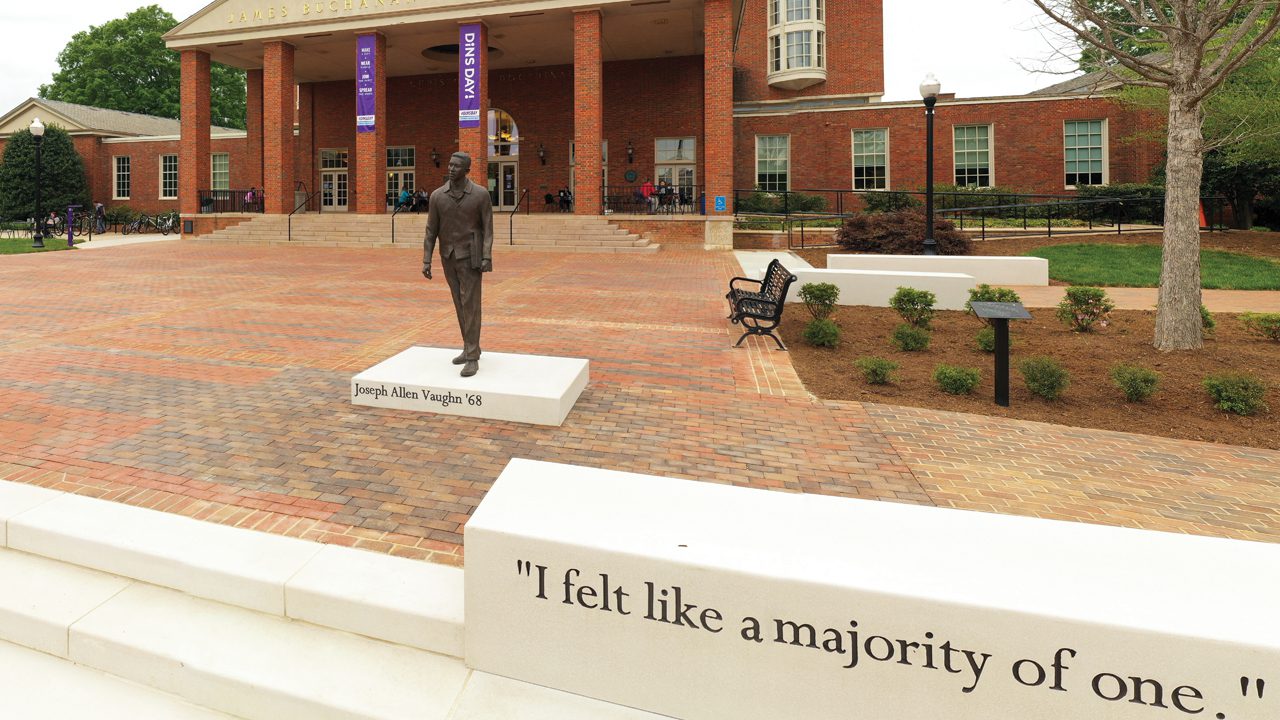
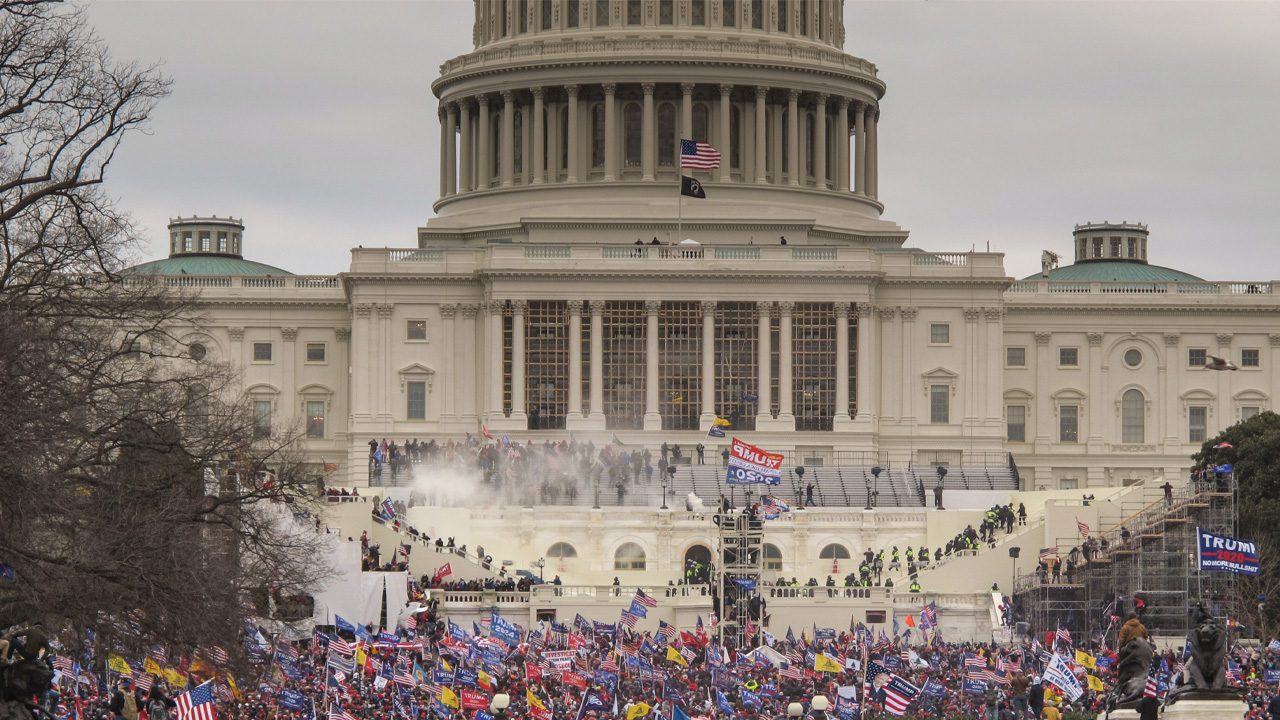
Q & A
A NATION AT A CROSSROADS
Furman professors Cynthia King, J. Aaron Simmons and Savita Nair address civics education in the context of the Jan. 6 attack on the U.S. Capitol.
In an op-ed in the Wall Street Journal, Richard “Dick” Riley ’54 and five other former U.S. secretaries of education called for a return to civics education after years of polarization and the insurrection at the U.S. Capitol on Jan. 6, when a pro-Trump mob attempted to prevent Congress from certifying the presidential election victory of Joe Biden. Riley, for whom The Riley Institute at Furman is named, is also a former governor of South Carolina. “A constitutional democracy requires a citizenry that has a desire to participate, and an understanding of how to do so constructively, as well as the knowledge and skills to act for the common good,” wrote the bipartisan group of former education secretaries. “Yet a history and civics education for the 21st century must also grapple with the difficult and often painful parts of our history –including enslavement, segregation and racism, indigenous removals, Japanese-American internment, denials of religious liberty and free speech, and other injustices.” Three Furman professors shared their thoughts about this idea.
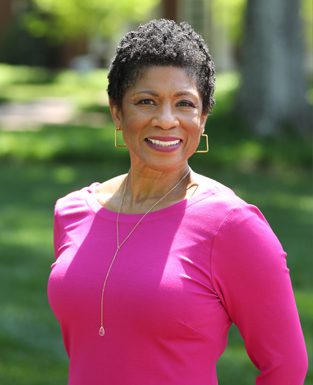
Cynthia King
CYNTHIA KING, PROFESSOR OF COMMUNICATION STUDIES
The insurrection of Jan. 6 can inform a civics curriculum. (The fact) that political demagoguery disseminated across political media sparked the violence suggests that rhetorical education and media literacy should be taught alongside governing principles. A good first step is making civics education a national priority. According to a 2018 National Assessment of Educational Progress Study “civics education is in crisis,” especially in low-income school districts. Funding innovative instruction in all schools and designing a curriculum with content that students see as relevant to their life are also important. Teaching students to use the levers of civic power responsibly and strategically is especially important for student members of marginalized groups who see their voting rights suppressed. History and current events have shown us that student citizens are a force when galvanized. Strikingly, they tend to use their collective voices to reject bigotry and injustice. Viewed in this light, investing in civics education stands to yield reasonable and humane citizens who disagree stridently but have the good sense to know that mob violence will not solve problems.
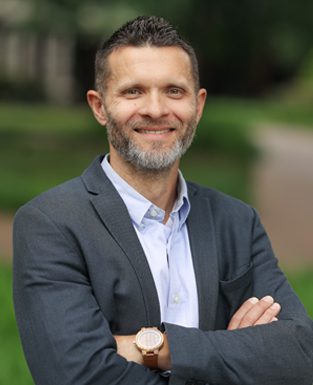
Aaron Simmons
J. AARON SIMMONS, PROFESSOR OF PHILOSOPHY
Thinkers from Socrates to Cornel West have stressed the point that far too often truth takes a back seat to narratives of convenience. Although the Capitol insurrection was a vicious attack on democracy, it was also quite unsurprisingly internal to a political structure that has fostered conspiracy theories, trafficked in what the philosopher Harry Frankfurt terms “bulls—,” and viewed fear-based division as a tool for reinforcing power. In response to such a situation, placing greater emphasis on the importance of critical questioning in light of the realties attending to human social life is much needed indeed. Socrates warned the Athenian political leaders that they would slide into error if they were not more committed to truth than to their own status. He was right. Accordingly, civics education may not help those already perversely devoted to the vice of racist and self-protective nationalism, but it very likely could show coming generations that wrestling with the big ideas concerning truth, beauty and goodness helps to guard against such vice getting a foothold in our thinking and social practice.
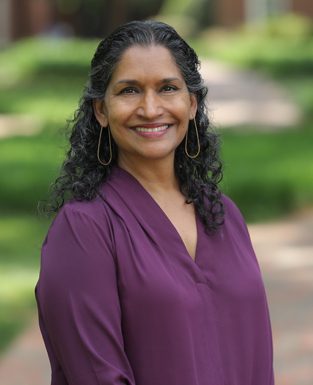
Savita Nair
SAVITA NAIR, PROFESSOR OF HISTORY AND ASIAN STUDIES
Civics education is rooted in 19th-century European aims of loyal and disciplined subjects –subjects of empire for colonies around the world and subjects of a nascent nation in the post-Civil War U.S. British authorities imposed civics education in their colonies’ schools to counteract “disloyal” colonial subjects; the U.S. did so to “Americanize” a growing immigrant population. Driven by a desire to “turn pluribus into unum,” civics education seems compelling; however, we first must reckon with the myth of a nation’s “shared history” as we resist the idealization of the “unum.” A nation is not a natural given, but a modern idea that aimed to align people after the demise of religious and absolutist loyalties in 18th -and 19th -century Europe. History education reveals a nation’s “constructedness,” with its fractures and failings, and thereby approaches its truth. History education enables us to weigh evidence and present arguments about a nation’s actual past and present. Historians are truth-seekers, knowing that the “truth” – however elusive – must include the welcoming of many voices. With a brave approach of continuous questioning, a willingness to embrace struggle and messiness, we can create an ever more genuine, just and complete unum.
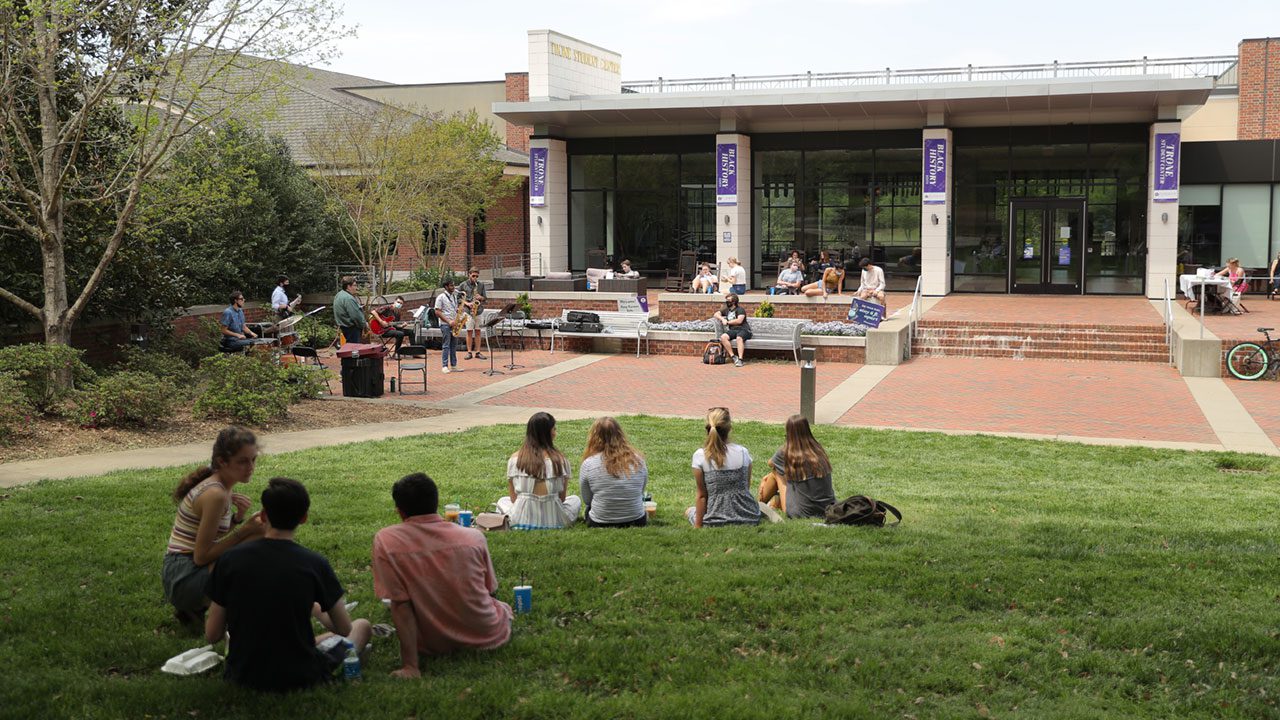
At Furman Engaged, students present their immersive learning experiences and show what’s possible at Furman.
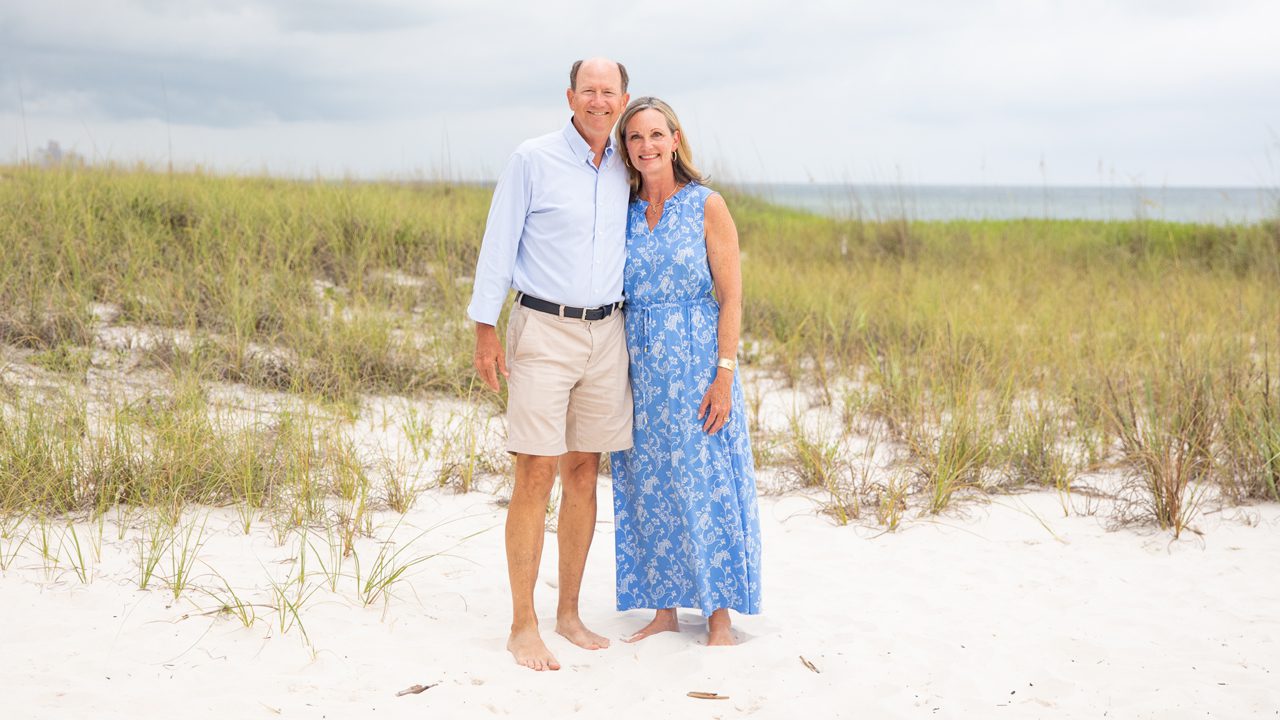
James A. Lanier Jr. ’79 and Mary Anne Anderson Lanier ’79 make a new $1 million commitment to Furman.
